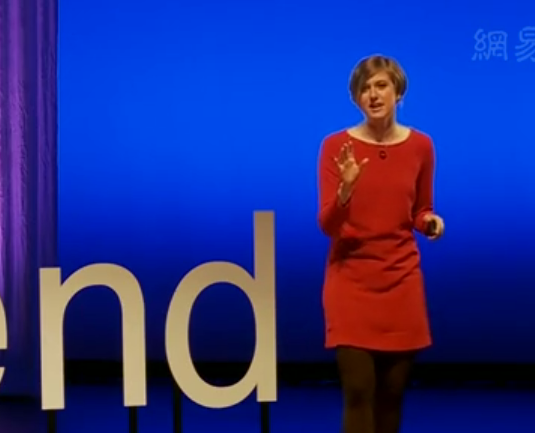This was the first permit of its kind in Oregon.
下面是這類技術在俄勒岡州第一個通過法令的例子。
Brave and open-minded people sat down and felt comfortable saying, "Yeah, that shit makes sense."
勇敢而心胸開闊的人們在圓桌會議上闊談到:“對,那坨粑粑聽起來很有道理。”
"Let's do it." You know?
“我們放手干吧!”你們知道嗎?
I keep showing examples where everyone's reusing everything on-site. Why?
我不斷的拿出各種例子,其中每個人都在重復使用每一樣東西。為什么呢?
Well, when we look at our aging infrastructure -- and it is old -- and we look at the cost of updating it,
當我們目睹了這些老化著的器械,然后我們看到了更新它們的價格,
three-quarters of that cost is just the pipes snaking through our city.
三分之一的錢將花費在更新城市地下管道上。
So as we build anew, as we renovate, it might make more sense to treat and reuse everything on-site.
所以作為我們去整修,去翻新,把它們換成兼備治理和循環的設備也許更合理。

San Francisco realized that it made sense to invest in rebates for every household
舊金山就意識到了這一點:他們在家裝當中投資退稅活動,
to reuse their wash water and their rainwater to water the backyard,
以此來拯救那些洗浴用水和雨水。人們用這些水去澆灌他們的后院兒,
because the amount of water they would save as a community would be so big.
因為從整體來說這樣真的能節約很多水。
But why were all these projects so innovative? The money piece, yeah.
但是為什么說這些項目都很創新呢?從錢的角度來說是一方面。
But more importantly, they felt comfortable with this idea of advanced potty training.
其實更重要的,還是他們想到能夠擁有先進如廁技術。
Imagine if we embraced innovation for sanitation the way we have for, say, solar power.
想象如果我們能夠運用全新的衛生設施體系,就拿已有的例子途徑來說,太陽能。
Think about it -- solar power used to be uncommon and unaffordable.
思考一下它吧,太陽能曾經十分稀少且價格高昂。
Now it's more a part of our web of power than ever before. And it's creating resiliency.
現今它是我們能源鏈上的重要一員。它也逐漸表現出適應性。
We now have sources of power like the sun that don't vary with our earthly dramas.
我們現在擁有與太陽能類似的能源,而且并不隨地球陰晴而改變。











